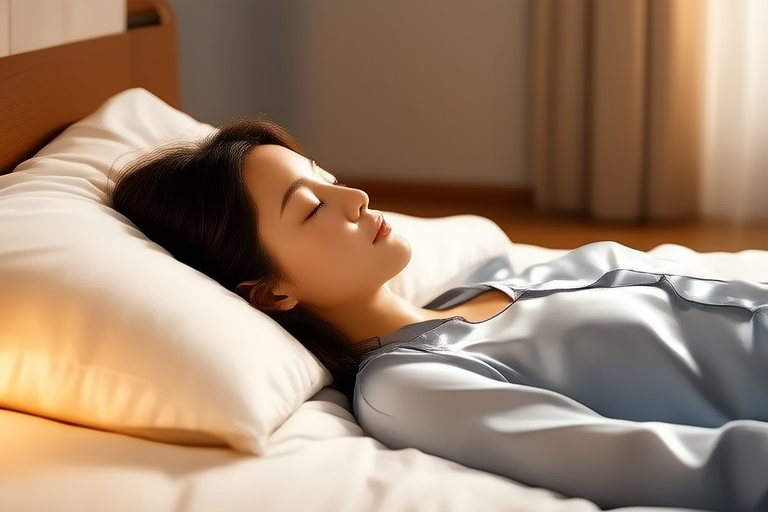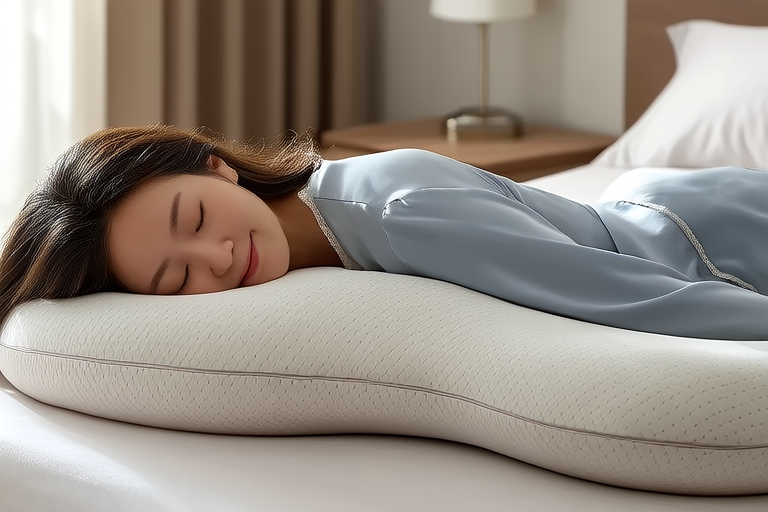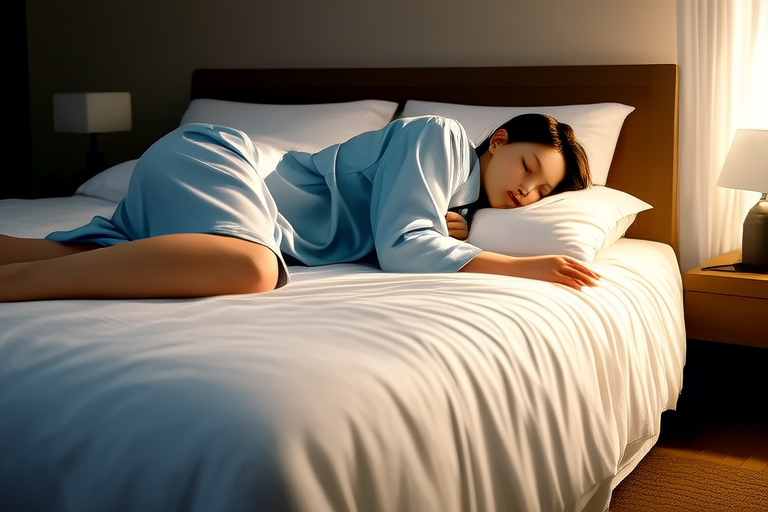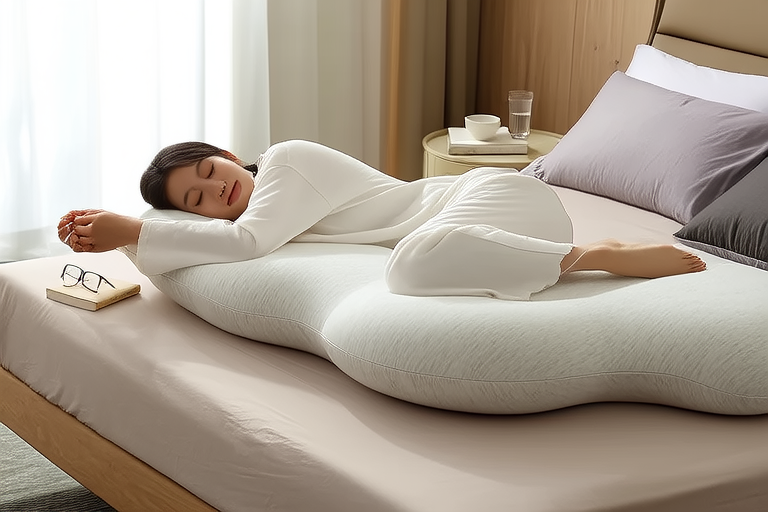Unlocking the Secrets to Better Sleep: Your Ultimate Guide to Sleep Health
In today’s fast-paced world, sleep is often sacrificed in favor of productivity, entertainment, or other priorities. Yet, sleep is not a luxury—it is a fundamental pillar of health, as essential as diet and exercise. Poor sleep can lead to a cascade of physical, mental, and emotional challenges, while quality sleep empowers you to thrive. This guide delves into the importance of sleep, explores common disruptors, and provides actionable strategies to help you achieve restorative rest. By prioritizing sleep health, you can unlock your body’s full potential and enjoy a more balanced, energized life.
The Importance of Sleep for Overall Health
Sleep is far more than a period of rest; it is a dynamic process that supports nearly every system in the body. During sleep, your brain consolidates memories, processes emotions, and clears out toxins. Simultaneously, your body repairs tissues, regulates hormones, and strengthens the immune system. Chronic sleep deprivation has been linked to a host of health issues, including obesity, diabetes, cardiovascular disease, and weakened immunity. Mental health also suffers, with poor sleep contributing to anxiety, depression, and cognitive decline.
For optimal functioning, adults typically require 7-9 hours of sleep per night, though individual needs may vary. Prioritizing this time allows your body to complete its vital restorative processes, ensuring you wake up refreshed and ready to tackle the day. Recognizing sleep as a cornerstone of well-being is the first step toward making meaningful changes to improve your sleep health.
Common Factors That Disrupt Sleep
Despite its importance, many people struggle to achieve consistent, high-quality sleep. Several factors can interfere with your ability to fall asleep, stay asleep, or experience deep restorative rest:
- Stress and Anxiety: Worries about work, relationships, or finances can keep your mind racing long after you’ve turned off the lights. Elevated stress levels trigger the release of cortisol, a hormone that can disrupt your natural sleep-wake cycle.
- Irregular Sleep Schedules: Inconsistent bedtimes and wake times confuse your internal clock, making it harder to establish a reliable rhythm. Shift work and frequent travel across time zones can exacerbate this issue.
- Poor Sleep Environment: A bedroom that is too noisy, bright, or uncomfortable can hinder your ability to relax. Even small distractions, like an uncomfortable mattress or excessive room temperature, can impact sleep quality.
- Screen Time Before Bed: The blue light emitted by phones, tablets, and computers interferes with melatonin production, the hormone responsible for regulating sleep. Late-night scrolling can delay your ability to fall asleep and reduce overall restfulness.
- Caffeine and Alcohol Consumption: While caffeine is a well-known stimulant that can linger in your system for hours, alcohol may initially make you feel drowsy but ultimately disrupts the deeper stages of sleep.
Understanding these disruptors is crucial for identifying areas where you can make meaningful improvements. Addressing even one or two of these factors can significantly enhance your sleep quality.
Practical Tips for Improving Sleep Quality
Achieving better sleep doesn’t have to be complicated. Small, consistent changes can yield significant results over time. Here are some practical tips to help you improve your sleep quality:
Establish a Consistent Sleep Schedule
Going to bed and waking up at the same time every day—even on weekends—helps regulate your circadian rhythm. This consistency trains your body to anticipate sleep, making it easier to fall asleep and wake up naturally. If you’re adjusting your schedule, aim to make gradual changes rather than drastic shifts to avoid disrupting your routine.
Create a Relaxing Bedtime Routine
Engage in calming activities before bed to signal to your body that it’s time to wind down. Reading a book, practicing gentle yoga, or taking a warm bath can help ease tension and prepare your mind for rest. Avoid stimulating activities, such as vigorous exercise or intense conversations, in the hour leading up to bedtime.
Optimize Your Sleep Environment
Your bedroom should be a sanctuary for sleep. Keep it cool, dark, and quiet to promote relaxation. Consider blackout curtains, earplugs, or a white noise machine if external factors like light or sound are problematic. Investing in a comfortable mattress and pillows tailored to your preferences can also make a world of difference.
Limit Screen Time Before Bed
Set a digital curfew by turning off screens at least 30-60 minutes before bedtime. If you must use devices, enable night mode or blue-light filters to minimize their impact. Instead of scrolling, try journaling or meditating to clear your mind and transition into sleep mode.
Watch Your Diet and Hydration
Avoid heavy meals, caffeine, and alcohol in the hours leading up to bedtime. Opt for a light snack if you’re hungry, such as a banana or a handful of nuts, which can provide a gentle energy boost without interfering with sleep. Staying hydrated throughout the day is important, but try to reduce fluid intake in the evening to prevent nighttime awakenings.
Manage Stress and Anxiety
Practice mindfulness techniques, such as deep breathing exercises or progressive muscle relaxation, to calm your nervous system. Journaling can also be a helpful tool for processing thoughts and releasing worries before bed. If stress persists, consider speaking with a therapist or counselor to develop coping strategies.
The Role of Sleep Hygiene
Sleep hygiene refers to the habits and practices that promote consistent, uninterrupted sleep. It encompasses everything from your daily routines to your sleep environment. Good sleep hygiene is foundational to achieving restorative rest and can serve as a framework for addressing sleep challenges.
One key aspect of sleep hygiene is maintaining a regular schedule. Beyond bedtime and wake times, this includes structuring your day to include exposure to natural light, which helps regulate your circadian rhythm. Morning sunlight, in particular, signals to your brain that it’s time to be alert, while dimming lights in the evening encourages melatonin production.
Another critical component is creating boundaries around technology use. Establishing tech-free zones or times can reduce distractions and promote relaxation. Additionally, reserving your bed for sleep and intimacy only helps reinforce the association between your bed and rest, making it easier to drift off when you lie down.
Finally, sleep hygiene involves listening to your body’s cues. If you’re feeling tired, honor that signal by going to bed rather than pushing through. Similarly, if you find yourself lying awake for more than 20 minutes, get up and engage in a quiet activity until you feel sleepy again. This approach prevents frustration and reinforces the connection between your bed and restful sleep.
Conclusion: Actionable Insights for Better Sleep
Sleep is a vital component of health and well-being, yet it is often overlooked in our busy lives. By understanding the importance of sleep, recognizing common disruptors, and implementing practical strategies, you can take meaningful steps toward improving your sleep quality. Establishing a consistent sleep schedule, optimizing your sleep environment, and practicing good sleep hygiene are all essential elements of a restful night’s sleep.
Remember, small changes can lead to big results. Start by identifying one or two areas where you can make improvements and build from there. Whether it’s setting a digital curfew, creating a calming bedtime routine, or investing in a more comfortable mattress, every effort counts. Prioritizing sleep is an investment in your overall health, empowering you to live a more vibrant, balanced life. Unlock the secrets to better sleep today, and wake up to a brighter tomorrow.










